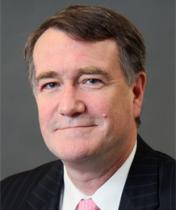Abstract
Current trends in international legal scholarship have shifted from a paradigm of state actors working within recognized sources of international law to one that includes networks of domestic regulators that develop and implement best practices or standards on a global basis. The new paradigm can be seen in operation in the efforts by onshore jurisdictions (most of which are financial centers themselves) to restrict the activities of offshore financial centers. Onshore jurisdictions enlisted these regulatory networks, as well as key international organizations, such as the Organization for Economic Co-operation and Development and the International Monetary Fund, to advance new standards for income taxation, prudential regulation, and money laundering in offshore centers. By 25, offshore centers’ compliance with financial, regulatory, and money laundering standards was largely complete, while there was less success with income tax standards. The current financial crisis, however, has spurred renewed efforts, particularly with respect to the latter. An analysis of this experience suggests that the new paradigm should view regulatory networks in the context of a complex system of states and international organizations that possess the qualities of such regulatory networks. A system of global governance that includes both regulatory networks and these international organizations advances fairness and objectivity and, in particular, may protect weak states from the coercive power of the stronger.
Keywords
Legal Standards, Non-Governmental Regulators, State Actors, International Law, Global Financial Issues
Publication Date
2010
Document Type
Article
Place of Original Publication
North Carolina Law Review
Publication Information
88 North Carolina Law Review 501 (2010)
Repository Citation
Gordon, Richard K., "On the Use and Abuse of Standards for Law: Global Governance and Offshore Financial Centers" (2010). Faculty Publications. 15.
https://scholarlycommons.law.case.edu/faculty_publications/15


Comments
Reprinted with permission of the North Carolina Law